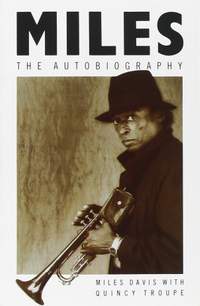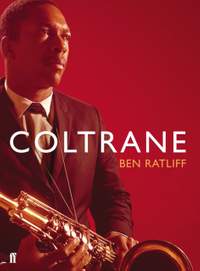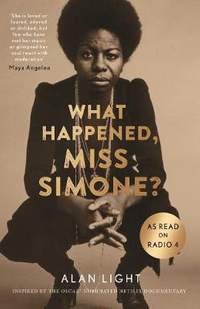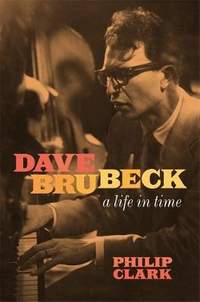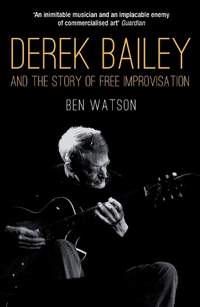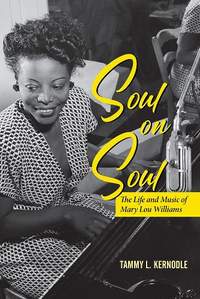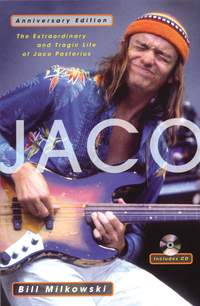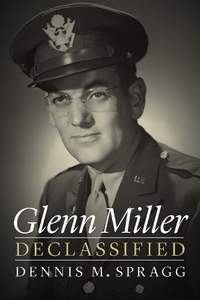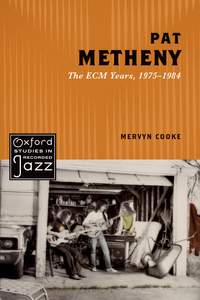Favourites,
Reading Material - Biographies of Jazz Legends
Get stuck into a good book with these biographies of jazz legends, from Miles Davis’s casual recounting of his wild and varied life, to Nina Simone’s involvement in the civil rights movement, to Glenn Miller’s disappearance over the English Channel.
For jazz autobiographies, you can’t go wrong with Miles Davis. Penned by the man himself - along with poet and journalist Quincy Troupe - the opening prologue begins with Miles recounting ”Listen. The greatest feeling I ever had in my life—with my clothes on—was when I first heard Diz and Bird together in St. Louis, Missouri, back in 1944”. It’s hard to imagine anyone but Miles himself taking us through his storied life, written in his casual and frank manner of speech, recounting his early passion for jazz trumpet, as well as experiences with drugs and various lovers - and it’s not always pretty.
Available Format: Book
New York Times jazz critic Ben Ratliff offers an incredibly thorough account of the legendary saxophonist John Coltrane’s life, right from the beginning as a member of his navy band, but paying particular attention to the last decade of his life in which many of his most important musical developments were made. Ratliff delves into Coltrane’s place in the historical canon of jazz, giving particular attention to the ingenuity John Coltrane’s music rather than the dirty details of his personal life, perhaps befitting of The Story of a Sound.
Available Format: Book
This biography of one of the all-time greatest vocalists draws upon rare interviews, diaries and even the aid of her daughter. What Happened, Miss Simone?, inspired by the Netflix documentary of the same name, chronicles Simone’s life from classically trained pianist to civil rights activist and internationally-renowned soul singer.
Available Format: Book
A fairly recent publication, Dave Brubeck: A Life in Time is the product of journalist Philip Clark’s ten-day shadowing of the Dave Brubeck Quartet in the early 2000s. Taking the opportunity to interview the eminent pianist, Brubeck opens up about his time with his classic quartet, as well as his relationship with other jazz greats like Duke Ellington, Charlie Parker, Louis Armstrong and Miles Davis. The book itself is structured around this extended interview between Clark and Brubeck, intersected with tangents and trivia from the pianist’s 66-year career.
Available Format: Book
The music of cult guitarist Derek Bailey is not what you’d call easy to listen to. Beginning his career as a session guitarist-for-hire, his personal work took a quick turn into extremely abstract territories at the turn of the 1960s. Always refusing to be categorised as a “jazz guitarist”, he frequently collaborated with a wide variety of improvisers and performance artists. Ben Watson’s biography on the intriguing guitarist sources from taped interviews with Bailey and his contemporaries, beginning with a particularly interesting primer on Bailey’s early life.
Available Format: Book
Perhaps the lesser-known name on this list, Mary Lou Williams’s influence includes not only composition and arrangement contributions to hundreds of songs, but also as a mentor to other jazz pianists like Thelonious Monk, Tadd Dameron and Bud Bowell, as well as soloists like Dizzy Gillespie, Charlie Parker and Miles Davis. Tammy L. Kernodle’s account of the pianist’s life includes her struggles as a woman in the music industry trying to assert her own musical identity, as well as her later-life embracing of religion and spiritual jazz. Soul on Soul seeks to give this unsung hero of jazz music her dues in the genre’s historical canon.
Available Format: Book
Anyone who proclaims themselves the “world’s greatest bass player” had better back that statement up - and Jaco Pastorius certainly did. After an early life playing in R&B bands, Pastorius would approach Joe Zawinul of Weather Report with that very declaration, hoping to join the band - he was successful, his role in the famed jazz fusion group bringing his incredibly idiosyncratic style of bass playing to wider audiences. With this new fame also unfortunately came drug abuse, Jaco already known for being quite volatile. Jaco chronicles his life from front to back, with this latest edition in particular featuring extended testimonials from family friends and contemporaries.
Available Format: Book
Dennis M. Spragg’s Glenn Miller Declassified is perhaps the least music-inclined biography on this list, instead delving into the big band musician’s military career and subsequent disappearance. With the help of Miller’s family, Spragg puts to rest numerous conspiracy theories surrounding his disappearance, in a way that may be dry and overly-factual to some readers, but makes for an interesting account nonetheless.
Available Format: Book
The ECM Years explores the first recordings of jazz guitarist Pat Metheny, from a highly fruitful period where he recorded eleven records for the German label. At a time when seemingly every jazz guitarist was making jazz-rock and wild fusion, Metheny’s unique approach was neither the straight-ahead approach of his bebop idols nor was it off-the-wall psychedelic fusion, developing his own style that incorporated his love of bebop, Americana and minimalism. Mervyn Cooke’s account of these recording sessions breaks down each album, and offers a rich insight into each.
Available Format: Book
Not a biography as such but a fascinating account of the strange and unlikely synergy between jazz and cricket that developed over the years, this recent publication by Leamington local Matthew Wright, explores the links between the author’s two passions, and the times the two have intersected. Jim Godbolt sums it up best in the book: “Both cricket and jazz, irrespective of style, require a sense of rhythm, timing, concentration, improvisation, solo and team work.” The book shines a light on many characters who might otherwise fade into history, such as Tunji Sowande who became the first Black judge in the UK, played with Ronnie Scott as well as being a keen cricketer and member of the MCC. The book is nicely illustrated, the pages packed with photos and memorabilia.
Available Format: Book


